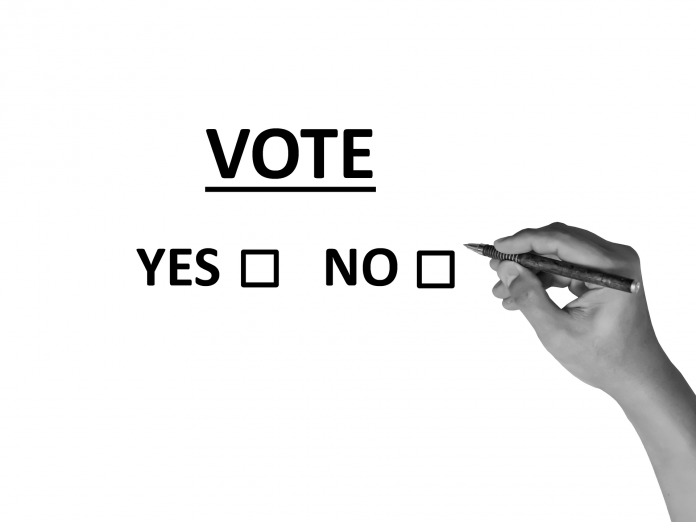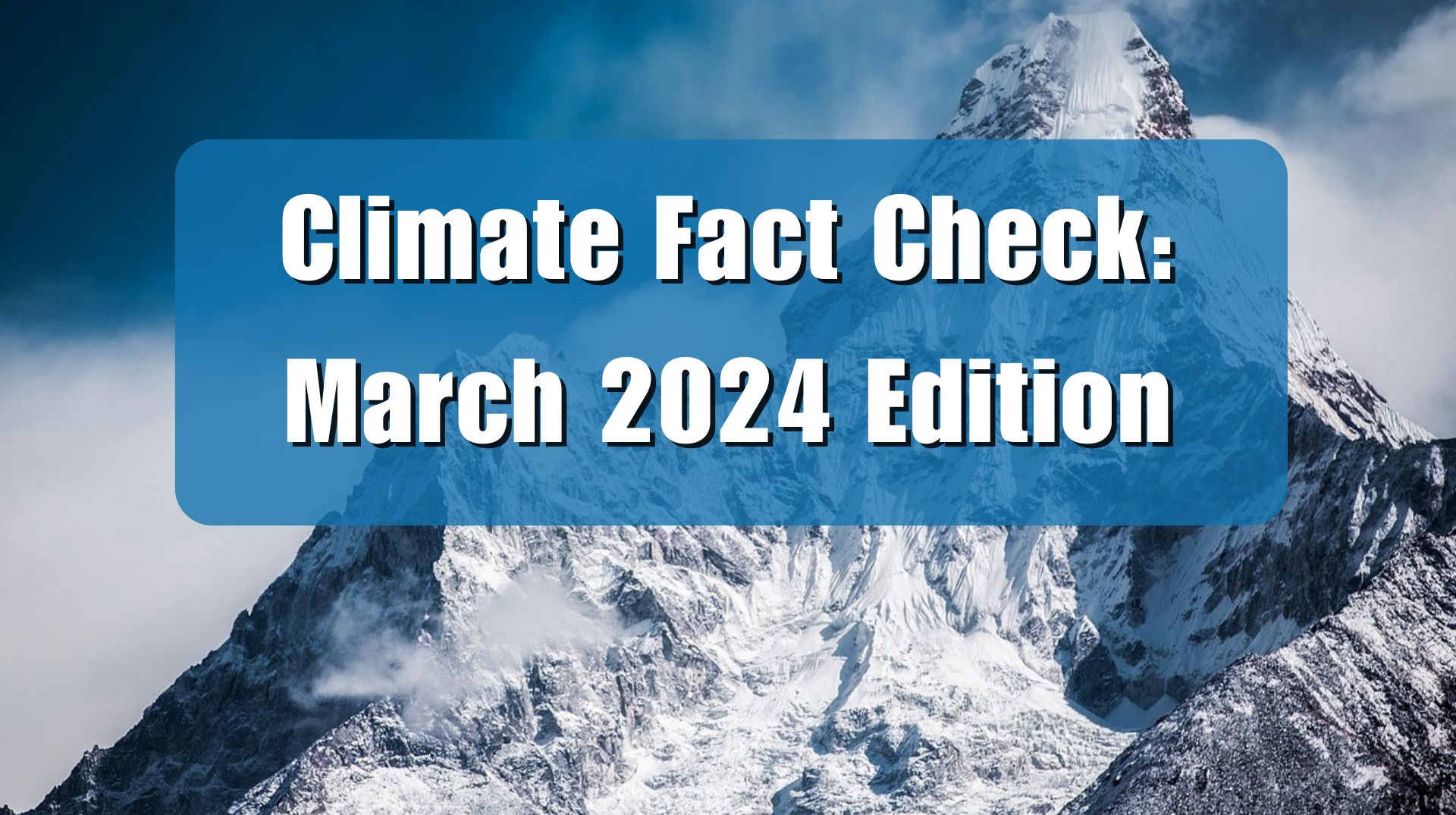In a recent post by The Conversation, “Climate change matters to more and more people – and could be a deciding factor in the 2024 election,” one of the authors of a recent study looking at polling and Americans’ attitudes towards climate change claims that despite being low on most people’s list of concerns, it actually plays a potentially deciding role in elections. This is unsubstantiated, and not only can the results can be manipulated based on what polling you select, but the researchers appear to have -at best- some major blind spots when it comes to interpreting their data.
Matt Burgess, assistant professor of environmental studies at the University of Colorado Boulder, wrote the Conversation piece, and is also one of the authors on the study being referred to. Right away, he admits that American voters’ top priorities are economics, inflation, crime, health care, education, and immigration. This is consistently shown to be true, as Climate Realism has pointed out numerous times. Not only do Americans rank other issues higher than climate change, but it is actually ranked last or tied for last for the majority of people when compared to other issues, even other environmental issues.
Still, Burgess insists that actually climate change has influenced presidential elections, writing “[d]espite this, research that I conducted with my colleages suggests that concern about climate change has had a significant effect on voters’ choices in the past two presidential elections.”
The authors used 2016 and 2020 survey data from “Voter Study Group,” a subsidiary of “Democracy Fund” which is described as nonpartisan, although they seem to lean decidedly left. The study analyzed “relationships between thousands of voters’ presidential picks in the past two elections with their demographics and their opinions on 22 different issues, including climate change.”
The survey data they used was one where they asked voters to rate climate change as “unimportant,” “not very important,” “somewhat important” or “very important.” Unsurprisingly, they found that 67% of those polled rated climate change as “somewhat” or “very” important, which was an increase from previous polling from 2016. They also report that 77% of those rating climate change as important expressed support for Biden in 2020, and 69% of them supported Hillary Clinton in 2016. Burgess says this suggests “that climate change opinion has been providing the Democrats with a growing electoral advantage,” but this is obviously ignoring another fundamental criterion, which is candidate likeability.
Even among Democrats, Clinton was unpopular. Remembering, for example, that many Bernie Sanders supporters were miffed when Clinton was given the nomination, polling data from the time showed that 12% of Sanders supporters ended up voting for Trump in the general election.
This is a pretty egregious oversight on the part of Burgess, and in the Conversation article, he admits that “[o]ur analysis could not answer” the question of how climate change opinion may have “tipped” the 2020 presidential election, but he offers “educated guesses.”
First, that because recent elections have been very close, “climate change opinion would not need to have a very large effect on voting to change election outcomes.” Number two was that “candidates who deny that climate change is real or a problem might turn off some moderate swing voters,” and third was that “some voters may be starting to see the connections between climate change and the kitchen-table issues that they consider to be higher priorities than climate change.”
None of this is evidenced by the data, and outside research calls it into question. The Pew Research Center tried the same thing in 2020, as covered by Climate Realism at the time, claiming that “a majority of registered voters in the United States say climate change will be a very (42 percent) or somewhat (26 percent) important issue in making their decision about whom to vote for in the presidential election[.]” However, once again, the same poll found that out of 12 policy issues, it was at the bottom of the ranking. The question “How important, if at all, are each of the following issues in making your decision about who to vote for in the 2020 presidential election?” was asked of surveyed voters, and even in that line of questioning, the economy, health care, supreme court appointments, corona virus, economic inequality, foreign policy, gun policy, immigration, racial and ethnic inequality, and violent crime all ranked higher.
Burgess admits towards the end of the article that Democrats “risk losing voters when their policies impose economic costs, or when they are framed as anti-capitalist, racial, or overly pessimistic.” This is a death blow to the idea that climate change gives Democrats a significant benefit in elections, because climate policy is consistently economically costly, especially when discussing banning fossil fuels, and polls show that voters are unwilling to spend very much money at all on climate issues. Additionally, the climate narrative is completely pessimistic with constant alarmist claims of impending doom.
In the end, the article about Burgess’ study reads more like wishful thinking than science. It is transparently an effort to use polling in order to influence people into believing that the climate issue is more important in their peers’ minds, so that social pressure will make it a priority for them too. If past polling and the reporting on it are anything to go by, this attempt will likely not succeed either, especially as energy costs rise amid the application of climate policy.

















Leave it the eco-freaks to say that climate change is a big issue for voters! Most people are not concerned when other pressing matters affect their lives! The Green Raw deal and banning of fossil fuels has forced artificial shortages of gas and other petroleum products. The rest of the world is not replacing fossil fuels in fact expanding their use and we’re exporting oil which makes no sense! We had better realize that this is all a waste of money and time this radical conversion to renewable energy sources for control of our freedom and reliable sources!